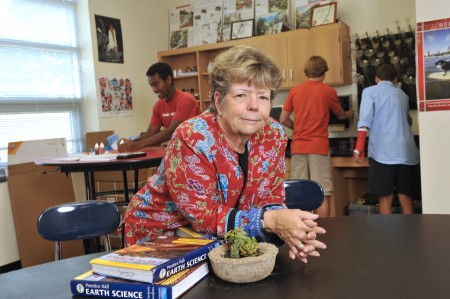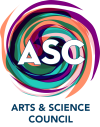ASC Honors, Cato Lifetime Achievement in Teaching Award – Elizabeth Withrow, Science

Why this matters: ASC recognizes that creative individuals and teachers enrich the cultural lives of everyone in our region and beyond through their work.
By BEA QUIrk
Elizabeth (Libby) Withrow has been the Science Department Chair at South Mecklenburg High School since 2011. But in her previous 35 years teaching earth science in Charlotte-Mecklenburg Schools, she taught at low-performing schools – McClintock Junior High, Smith Middle School and E.E. Waddell High School until it was closed.
Those assignments were all by choice.
“I believe in being an advocate for the down-trodden and low achievers,’ Withrow says. “I love working with children who have not had their eyes opened as much as others — you can give them so much.”
It was that kind of attitude that brought Withrow into teaching. In 1971, when she graduated from UNC Greensboro, she says there were basically only three options open for a woman with a degree in biology: become a secretary, a nurse or a teacher.
“Being caring was part of my personality, and I was a nurturing person,” she recalls. “I chose teaching.”
Withrow’s first position was at Cannon Junior High School in Kannapolis, where she taught from 1971-1976. The biology slot was already taken, so she taught earth science, which has been her subject ever since. She joined CMS in 1976.
Withrow earned a masters of education from UNC Charlotte and has been a Nationally Board Certified Teacher since 2002. She has not just taught science, but stayed active in her field – studying at the University of Miami to investigate the saltiness of Florida wells; traveling to Belize with NC Natural Museum of History to compare the environments of the two areas; and going to Japan on a Fulbright Scholarship to study Environmental Sustainability Development with American and Japanese teachers.
“There is nothing dormant when teaching science,” Withrow observes. “There’s never a dull moment, you have to keep current.
”At the start of each year, I tell my students I am going to lie to them,” she adds. “Everything we think is true today is going to change. I like them to ask me “what if” questions. And I challenge them every day to come up with something in their lives that does not include science in some way.”

